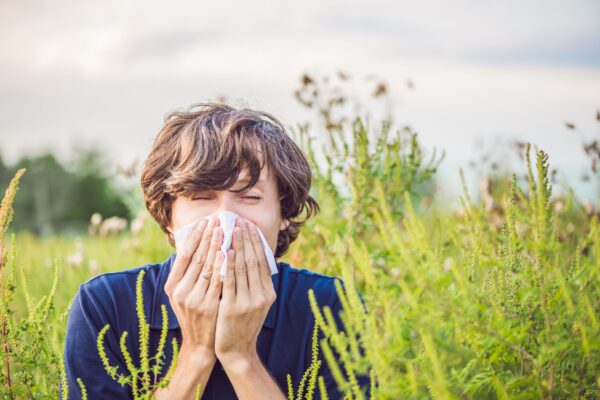Uncategorized
How Does Allergies Affect Your Lifestyle ?
Have you been informed of impact and sometimes severe consequences that accompany allegie what are undetected? Just as it can be rare or serious, anallergy attack may result in gastric discomfort or even asthma.
Acquisition of food/environmental Allergies identification technique and how to identify them properly is a mandatory skill for those who really want to lead a healthy life.
The recognition of a cause and effect relationship between allergies and the ability to take precautions and live happily is enabled by the allergy awareness. In this post, we will discover how allergy knowledge can change your life and how this way you would always be able to identify potential hazards linked to either the food or environmental allergies.
The initial approach to living securely with allergies would comprise of the knowledge of the various kinds and comprehending the one that relate to you.
How allergens of food may cause symptoms include itchiness, hives, swelling, nausea or breathing problem. Typically, peanuts, tree nuts, eggs, milk, wheat, soy, fish, shellfish, and sesame are the most commonly known food allergens.
Allergic reactions in the environment comprises pet danders, house dust mite, pollen and mold. You don’t want to be coping with allergy symptoms, so it is best to be aware of them so you will know whether avoid exposure or not from other food products.
Allergy Causes
If you have an allergen in your contact, the antibody of the immune system created. So the antibody functions in such a way that you can fasten it to the things causing you harm as a tag or a mark.
However, the next time you encounter one of those allergens, your immune system acts in a defensive mode. The antibodies see it and activate the mast cells.
The mast cells release numerous inflammatory substances, such as histamine, to help the body fight the infection Take mast cells for example which can be characterized as sentry cells.
They can be found in your skin, nose, eyes, and digestive system all the time. They serve as signaling molecules identified by the immune system as invaders of the body caused by viruses and bacteria.
Subsequently, these mast cells emit histamine and chemicals such as cytokines and leukotrienes that leads to your allergy signs.
Your symptoms will be influenced by the proximity and, perhaps, the situation in which you came in contact with the antigen. For example, you maybe have itchy, nose running, and your nose get stuffy when you breathe it in it and you may be wheezing and coughing.
If it is through the eyes that it enters, you may experience itchy and watery eyes, as well as red eyes. The skin can be a possible entry point as well and you may develop an allergic rash.
Indicated by whether allergen gets inside your system by means of something you ate or a medicine you took, you may then seem disgorging or Diarrhea and you then would be at higher risk of anaphylactic shock. Some food products, including peanuts, tree nuts and shellfish, to name a few, have higher risk of anaphylaxis.
Managing Allergic Reactions
Avoidance: It is the avoidance of those allergic triggers using the right primary strategy. Taking into account your environment, food you eat, or other medications might be one of the chosen therapies.
Medications:
Antihistamine, nasal decongestants and corticosteroids that can be bought over the counter are efficient in mild allergy symptoms. Speak to your doctor for recommendation on how best to handle the situation.
Allergy Shots (Immunotherapy):
Injection therapy, on the other hand, gradually but steadily improves the body’s tolerance to allergens by providing it with small portions of allergens respectively.
Emergency Epinephrine:
People who are at a risk of developing anaphylaxis (severe allergic reaction) are advised to always carry an epinephrine auto-injector and can take action if needed.
Consulting an Allergist:
Due to the fact that proper diagnosis plays a crucial role in allergic management plans featuring individual processes, you can reach an allergist who specializes in trigger identification and designing effective strategies.
Is It Anaphylaxis?
There are mild allergic reactions, but others are deadly that can lead to anaphylaxis in the worst case called the whole-body allergic response. Waiting for an ambulance in Epinephrine (adrenaline) treatment will result in faster reaction.
If you posses an auto-inhalational device that contains epinephrine, administer it without hesitation and do the same after 5 to 15 minutes in case you have not experienced a relief of your symptoms. Even after getting a relief with Epipen, you will require medical support to ensure that life returns to normal.
Signs of anaphylaxis include:
- Site and cramping everywhere.
- Reservedness of breathing like wheezing or shortness of breath
- The voice sounds husky or your throat feels tensed.
- Fluid buildup around your eyes, lips, and tongue as well as your throat and face becomes tight.
- A weightless sensation of your fingertips, toes, lips, or heads going numb.
- If your throat starts to get swollen, if it becomes hard to talk or breathe, therefore, call 911.
Staying Healthy During Allergy Season And Beyond
Along with allergies, your doctor will also help you decide the treatment that would be suited best to the symptoms.
This serves as a huge stress buster and it helps maintain the health of your entire immune system by keeping chronic inflammation under bay.
Now is the time to take one small step on your way to better living conditions and go consult your doctor about possibilities.
Why You Should Get Tested For Allergies ?
Sensitization testing is one of diagnoses methods, however, there is nothing more important in a diagnosis procedure than identifying the type of allergy that an allergen caused and exactly the substance or the element of substances that posed the danger.
In contrast to guessing, it will show you which allergens cause your allergic reaction. For the diagnosis of allergies different kinds of examinations are used – the skin test and the blood test, that allow find and classify a variety of allergens.
Your symptoms will be eliminated or rescued when you find out specifically which allergens are causing the problem. Then, you will be able to take steps to avoid them and reduce your exposure.
These may be a change in lifestyle, like consuming target food/using medical products or substances, or immunotherapy (allergy shots) or medication as treatments.
Allergy testing is of great significance for all those with mild or chronic allergies, it can provide an insurance that they will not fall into complications and life will be normal.
If you obtain general symptoms like these, it is important to get your checks done by doctors and consider allergy testing to find the exact cause of your symptoms.
An allergy may not discover standardized cure but an allergist can you design an individually suited treatment plan and a way to fight the allergies properly.
Risk factors
Genetically, the risk for allergies to be passed on from one generation to the next is commonplace. If you have allergies, your children are at high risk of getting them, because you’ll be transferring the allergic traits from what you got to them.
On the other hand, there is an increased trigger of sensitivity in children with parents suffering from allergies. Allergies often start at childhood and adolescent, but the development of allergies may also be seen in adults.
In some cases, allergies may affect a person less with age and in others, a patient might be allergic of a particular substance throughout his whole life.
Additionally, environmental factors are proving to be contributory in allergy development.
For example, children who occupies dusty home or going to be studied in regions of smoke or air pollution may have more in the risk of allergies.







I’d love to see a follow-up post discussing the role of nutrition in managing allergies. Any tips on foods to avoid or incorporate for allergy relief?
The mention of how allergies can impact mental health resonated with me. It’s tough feeling exhausted and irritable all the time. How do you cope with the emotional toll of chronic allergies?
The tips for managing allergies mentioned here are super helpful! I’ll definitely be trying out some of these strategies, especially the ones related to keeping my living space clean and free of allergens.
Allergies can really throw a wrench in your plans! It’s crazy how something so seemingly small can have such a big impact on our lives. Thanks for shedding light on this topic!
This article on allergies and lifestyle is so relatable! Allergies can really impact daily life, from avoiding certain foods to dealing with seasonal sniffles. Your tips on managing allergies are really practical. Thanks for the helpful insights!
Are there any natural remedies or alternative therapies that have been shown to be effective in managing allergies? I’m always curious about holistic approaches to health and wellness.
Hey there! This article really hit home for me. Allergies can be such a pain, right? They totally mess with my day-to-day life. From avoiding certain foods to constantly checking pollen counts, it feels like I’m always on high alert.
Allergies can really throw a wrench into everyday life, right? From sneezing fits to avoiding certain foods, they can be a hassle. It’s so important to stay informed and manage them effectively. Great article!
Allergies can really throw a wrench into daily life, can’t they? Whether it’s dealing with seasonal sniffles or avoiding certain foods, they definitely impact how we go about our day.
Allergies can really throw a curveball into everyday life, right? Whether it’s dealing with sneezing fits during spring or avoiding certain foods, they definitely affect how we go about our day.
Living with allergies can really impact your day-to-day. From seasonal sniffles to food sensitivities, navigating daily life requires constant awareness. It’s all about finding what works for you—whether it’s adjusting your diet, keeping allergy meds handy, or simply being mindful of triggers.
Allergies can be such a drag. For me, springtime is a mix of enjoying the outdoors and sneezing non-stop. It’s like my body has a personal grudge against pollen. I’ve learned to keep tissues handy and avoid certain areas, but it’s still a struggle.
As someone who deals with allergies, this article really hits home. It’s amazing how much allergies can impact your day-to-day life. From avoiding certain foods to dealing with seasonal sniffles, it’s a constant juggle. Thanks for shedding light on this topic!
Great article on allergies! They can seriously turn your life upside down. It’s amazing how something as simple as pollen can impact our daily routines. Thanks for shedding light on this!
Knowing how to identify food and environmental allergies is crucial for a healthy life. Regular testing and awareness of symptoms help in managing and avoiding allergic reactions effectively.
It’s incredible how understanding and identifying food and environmental allergies can make such a big difference in our lives. Knowing what to look out for and how to respond can really help us stay healthy and avoid unnecessary discomfort.
Interesting read! I didn’t realize the impact of environmental allergies on health.
Become an allergy expert and let your body thank you later! Spot the allergens and dodge the sniffles. 😄🌼 #HealthyLiving
Allergies are like that annoying friend who shows up unannounced and makes everything miserable.
Allergies are like having an uninvited guest who refuses to leave. Always there, always making you sneeze, but you learn to live with it. Sort of.